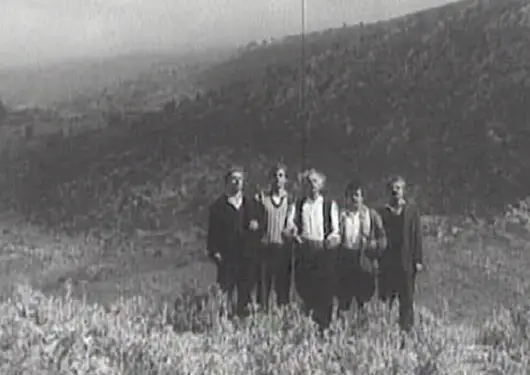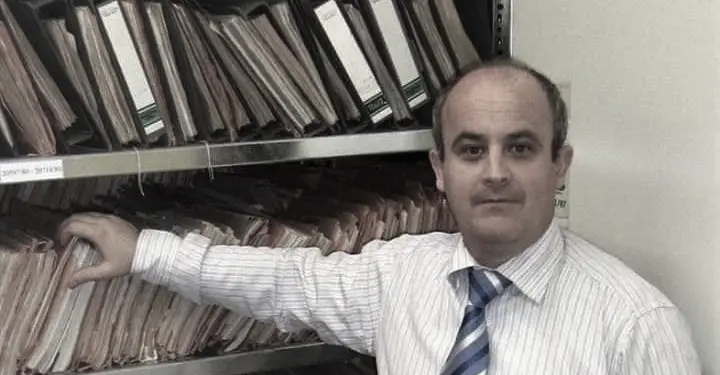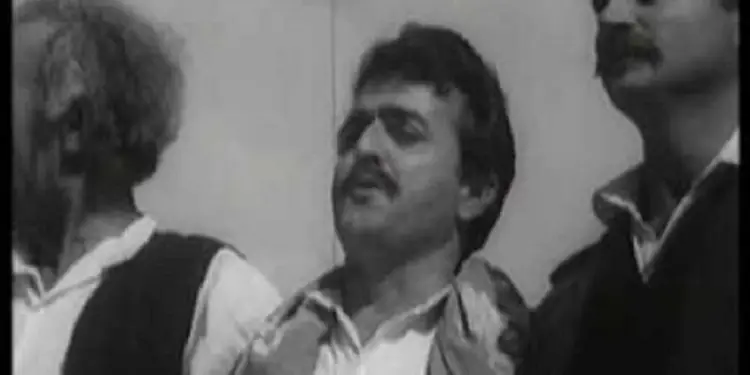By Kastriot Dervishi
THE TRUTH OF THE EVENT OF DECEMBER 1943, WHEN 10 HEKAL COUNSELORS WERE KILLED FOR HATE
Memorie.al / The film “Councillors”, “based on true events”, is an artistic forgery made during the communist dictatorship. In this film, a battalion of Germans with the help of some ballistic missiles is shown in search of some communist advisers from the village of Hekal in Mallakastra. That is, the German army came out as a police force to help the demands of the ballisticians, to solve their issues.
At the end of the film, following the “orders” of the ballisticians, the Germans shoot 10 Councilors of Hekal. The film, through forgery, gives the message of national pride, being harmful both to the knowledge of the truth and to the patriotic education of the generations. The event is actually quite different from what the film in question, made in 1979, has been manipulating for years.
In 1982, during an investigation undertaken by the Internal Affairs bodies, some truths emerged which verified that this was an event that was not related to the function of the advisers, that there were no Germans at all, and that those who killed the advisers were not they were as ballistic as they looked, and some were even left-handed. No one sang before the shooting, nor was there a theater like the one in the movie!
The event actually happened for a simple reason. A person named Isuf Hasani, from Rromsi i Mallakastra, after learning of the murder of his two brothers by some hekaliots, decided to take revenge. The uncertainty caused by the exact name of the killers, forced him to undertake the murder of 10 people who were councilors of Hekal village. Isufi, who killed 3 advisers, escaped from Albania. The other 7 councilors killed his companions.
It turned out that in December 1943, Isuf Hasani captured the 10 people and took them bound and escorted to Rome, and then to the Gorishova school. Isufi calls three counselors: Isa Zeqiri, Ali Ismaili and Ahmet Shena, who after taking them out to the back of the school kills them. Then, the other 7 people killed those of the firing squad.
The communist regime, although it knew them, never accused the other persons, because they had leftist relatives and connections. There were six people accompanying Isuf. For Osman Y. and Safet D., there are no biographical aspects, while for the others, the following information is given:
1-Izet D., born and resident in Varibob, farmer. They were considered to have “not taken a good political stance”, because they were associated with ‘Balli’ together with his brother Rrapon.
But Rrapoja had become a communist and in 1949, he was expelled from the party for “insincerity”. Izeti was married in a family where all were communists; he had 5 children, while one of his daughters (Izeti) was also a communist.
2-Shaban Rr., born and resident in Varibob, farmer, middle peasant. About him, the report states: “Before the liberation, his family maintained a good political position, while during the war, his parents died and he grew up with his uncle.
Shabani was included in the detachment of Rrapush Isuf Sh. and fought against the partisans, even committing crimes. After the liberation, his family has maintained a good political position, his two first cousins Luto and Hekuran Rr. are members of the party, the first with a non-commissioned officer job at the Cakran free school and the second a cooperator”.
3-Hamit S., born in 1925, born and living in Varibop, middle peasant. It was said: “Before the war, they maintained a good political position, but during the war, they did not maintain a good position, according to Hamiti himself, he participated in Rrapush Isa Sherif’s ballistic squad.
After the liberation, the political attitude of the family members was characterized as good. Hamiti has a sister, Idajeten, married in Kreshpan to Bajram Y., who was an officer and was expelled from the party for insincerity. He has a daughter Fatima, married in Buzëmadh to Asqeri L., who is a member of the party”.
4-Shahin L., born in 1920, born and living in Varibop, middle peasant. The report says: “During the anti-popular regime of Zog, his parents maintained a good attitude, and during the war, they sympathized and helped the National Front. Shahini himself is included in the squad of his fellow villager Rrapush Sh.
Similarly, his brother Faslliu has been with Balli for 2 months and was expelled from the Party (Communist-note) for not being sincere. After the liberation, he maintained a good attitude. He is married to Xhevo L. with a good political attitude, with which he has 6 children. There is a nephew (brother) Qani L. who is an officer and organized in the party, as well as his sister’s son Pajtim Xh., who lives in Cakran and is a party member”. Memorie.al













